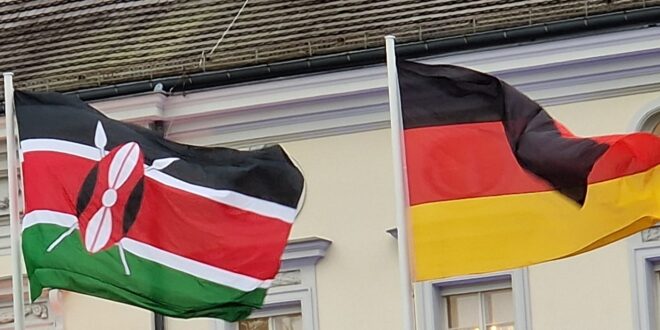Kenyan President William Ruto is visiting Berlin, Germany, this week to participate in several significant events, including the historic co-hosting of the 2024 Annual Citizen Festival of the German President (Bürgerfest des Bundespräsidenten) alongside the German President Frank-Walter Steinmeier.
This marks the first time a non-European country has been invited to co-host this prestigious event, highlighting the strong economic and political ties between Kenya and Germany, which span over 60 years.
Scheduled to take place from September 13-14 at the German President’s residence, Schloss Bellevue in Berlin, the festival will showcase Kenya’s cultural heritage through various displays, including music, food, and traditional artifacts.
The theme of the event, “Pamoja – Stronger Together,” reflects the spirit of collaboration and cultural exchange between the two nations. This platform offers Kenya a significant opportunity to promote its tourism sector and enhance trade relations with Germany, as well as other international stakeholders.
Beyond the cultural showcase, President Ruto’s visit is also strategically important for bilateral economic cooperation. A key highlight will be the signing of a groundbreaking labour migration agreement between Kenya and Germany aimed at streamlining the process for skilled and semi-skilled Kenyans to access employment in Europe’s largest economy. This agreement is expected to create job opportunities for Kenyan workers in Germany, particularly in skilled and semi-skilled sectors.
For Kenya, this deal will help address the country’s unemployment challenges, while Germany, facing a labour shortage, will benefit from a steady flow of skilled workers. The agreement, which has been under negotiation for several months, includes provisions for the protection of workers’ rights, ensuring fair treatment and opportunities for Kenyan migrants.
Steffen Hebestreit, a spokesman for the German government, confirmed that “the framework agreement will facilitate the immigration of skilled labour and address the repatriation of those who are required to leave the country.” This includes failed asylum applicants who may be forced to return home under certain conditions, to ensure a structured migration process that benefits both countries.
During his stay, President Ruto is also expected to engage with the Kenyan diaspora in Germany, strengthening ties and encouraging their participation in Kenya’s development initiatives. Moreover, Ruto will hold meetings with key business leaders and investors in Berlin, promoting Kenya as a strategic investment destination, particularly in sectors like manufacturing, renewable energy, and technology.
Overall, this visit not only underscores the strong partnership between Kenya and Germany but also offers significant cultural, economic, and diplomatic benefits for both countries. The Bürgerfest will serve as a powerful platform for Kenya to further its international profile and deepen its relationships with global partners.
This will be the second visit President Ruto is making to Germany since his assumption of office.
Adira Kallo
 THE AFRICAN COURIER. Reporting Africa and its Diaspora! The African Courier is an international magazine published in Germany to report on Africa and the Diaspora African experience. The first issue of the bimonthly magazine appeared on the newsstands on 15 February 1998. The African Courier is a communication forum for European-African political, economic and cultural exchanges, and a voice for Africa in Europe.
THE AFRICAN COURIER. Reporting Africa and its Diaspora! The African Courier is an international magazine published in Germany to report on Africa and the Diaspora African experience. The first issue of the bimonthly magazine appeared on the newsstands on 15 February 1998. The African Courier is a communication forum for European-African political, economic and cultural exchanges, and a voice for Africa in Europe.



































